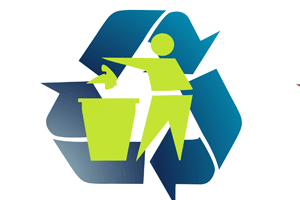Last updated April 12, 2019
 The question of government involvement in programs designed to benefit society is fast becoming a hot-button political issue. Conservatives are pressing the point of view that private enterprise can take over much of what the government now tries to accomplish while liberals would have us believe that sometimes government action is necessary to get things moving or keep up momentum. This very issue is likely to be a major player in the coming presidential campaign.
The question of government involvement in programs designed to benefit society is fast becoming a hot-button political issue. Conservatives are pressing the point of view that private enterprise can take over much of what the government now tries to accomplish while liberals would have us believe that sometimes government action is necessary to get things moving or keep up momentum. This very issue is likely to be a major player in the coming presidential campaign.
Cell phone recycling programs show us that both approaches can actually do some good. A recent example can be found in Westland, Michigan. The city has long run a successful program for recycling mundane goods such as plastic bottles and aluminum cans. Now, Westland has its eye on discarded electronics such as television sets, computers, MP3 players, video game systems, and of course, cell phones.
Of these, cell phones are perhaps the most pressing candidate for recycling. Many consumers go through cell phones at a relatively fast clip, buying the latest and greatest model as soon as it comes out. Few people cycle through computers at such a rate. Rather than letting unused cell phones sit in a drawer, or worse, be tossed into a landfill, behavior which is illegal in much of the nation, it only makes sense to recycle them.
Westland is partnering with a private recycling firm to do the “heavy lifting” of the program; the city’s role is more limited, consisting mostly of promoting cell phone recycling.
And that, perhaps, is the best of both worlds.